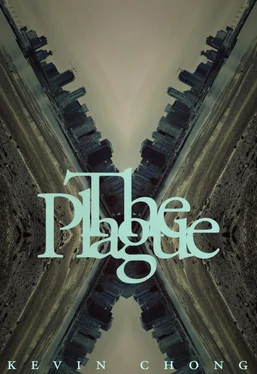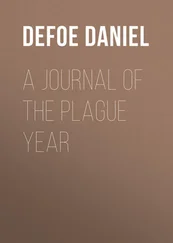The words on the page jittered in Castello’s shaking hands. She would not end up reading her statement. Instead, she folded the printed statement and replaced it in her shoulder bag. Its clasp snapped shut. She rose from her chair and went out the door.
The parole board members were stooping toward their own screen in search of her. Rieux followed Castello outside. She was hyperventilating, flapping her hands toward her neck.
“Let’s get you outside,” Rieux suggested.
She had trouble twisting the cap from her water bottle. “I don’t see the point in this anymore,” she told him. “He can see the stars at night for all I care.”
Victor emerged from the room. He advanced toward them like a bull. “I told them that you decided not to offer your statement. They’re deliberating now,” he said. “They will call us when a decision has been reached.”
“I’m not going back in,” his estranged wife said. “How about you?”
“I’ve already cleared my schedule,” Victor told her. He stared at the ground as lawyers in black robes passed them. He didn’t want to be recognized by peers when he was here as a victim. He asked his ex, “Are you ready to forgive him?”
Castello shook her head. “No, but I only have time for one prison.”
“I don’t want to be angry anymore,” Victor said. “But if I let this go, then I let our boy go.”
The Castellos lingered, drawing closer to each other but never touching. Rieux stepped back to watch them. They looked like two smokers on a deck, their conversation an excuse to stew in each other’s stained breath.
Rieux remembered that the two of them had installed a bench on the Seawall with a plaque dedicated to their son’s memory. Orla Castello had been there only on the day it was unveiled. She said she was glad to know it existed. Victor visited that park bench weekly, regardless of the weather. He sat with a newspaper and coffee and remained until he was done with both. He liked to imagine strangers from around the world seeing Adam’s name on their visits. They would subtract the year of birth from the year of death and feel sad for a moment—not knowing the circumstances of his early demise but still wistful about a foreshortened life—before they turned back to look at the sun on the water or a jogger running by with a dog.
A parole board employee appeared. A verdict had been given and they were allowed back in the room to hear it. Castello stepped away from her husband toward Rieux. Victor continued alone back into the conference room.
From this point on in our story—until the chapters near the end of our narrative—the experiences of the principal figures become more deeply entwined. Many of the events described here were witnessed by at least two of the “characters” detailed in these recollections. For simplicity, the remaining chapters are told through a single perspective but have been verified by others present.
Megan Tso was initially surprised that Rieux would contact her about finding a way for ordinary people to help fight the disease. “You’re well connected,” he told her over dinner. “I’ve seen the way people respond to you.”
She knew he was withholding something from her. “There are other well-connected people in the city,” she said. “People who actually live here. Why me?”
Rieux had a way of speaking that was remarkably strident and abstracted; he sounded like a zealot. Even drunk on wine and wearing a baggy T-shirt that engulfed his wiry body, he vibrated with the arrogance of a doctor. He could be a cult leader, she thought, but, thankfully, he runs a charisma deficit. People simply didn’t respond to him. On his best days, he was charisma neutral.
“I see two types of people working for us,” he replied without answering her question. “Those who are noble and those who think they’re invincible.”
“Which one am I?” she asked him with a snicker.
“You’re noble. You have no fear of death.”
“Yeah, I’m real chill about dying.”
He looked almost wounded. “I don’t know you very well, but that’s my belief. I think you’d be okay with whatever risk might come if you knew it was for a good reason.”
“Well, thank you, I guess, for thinking that I have nothing to lose.”
What people needed, Rieux and Tso decided together, was not more medical intervention, but help. The Sanitation League of Vancouver (Tso could not convince Rieux to agree on a catchier name for their group) would provide meals and run errands for those affected by the disease.
Until they found more volunteers, Rieux and Tso worked in separate shifts that entailed different demands. Rieux volunteered on weekends and those nights when he wasn’t at the auxiliary hospital. Often he would escort callers—who usually lived on their own—to the hospital and admit them personally. Tso worked during the weekdays. She had designed a poster to outline the Sanitation League’s mission and distributed it in areas of the city most affected by the disease. The poster advertised a hotline (a burner cellphone that they passed back and forth when one took over duties from the other).
Janice Grossman was excited to join the Sanitation League. As always, she offered herself whenever an opportunity arose. Since she had finished cleaning her father’s apartment and completing the paperwork that tailed any death, she had taken stock of her life. In the past year, she had lost both her long-term partner and her father. She was frightened, but she also felt invincible—after all, she’d remained on her feet after the worst had happened, and her new freedom gave her a sense of exhilaration. She no longer needed to take her father to his doctor’s appointments. She could sell the house and live comfortably for years. She could also rent her father’s apartment and the retail space and have enough income to quit her job. “I’m worried I’ll self-sabotage myself and adopt six dogs with special needs,” she told Tso. “I tend to complicate things.”
“Isn’t this a distraction?” Tso asked her.
Grossman swore it wasn’t. “I’m helping other people. I’m spending time with a friend.”
Until she could collect her windfall, she lived off her credit card and devoted herself to a variety of creative projects. She had plans to turn her former lover’s studio into a performance space. She worked on a novel but got stuck on revising the first sentence: “For seven centuries, the rival clans of Mok-Tah fought until the cloudy day Princess Destiny emerged from a dragon-drawn carriage and announced that she would offer herself as the bride to the person or spirit who would join the warring factions.”
“The first sentence needs to be perfect,” Grossman insisted soon after she’d made her comment about self-sabotage. “But all that sitting has been murder on my back. Delivering meals is the perfect task. I need something to get my blood circulating.”
They expected their first few days to be slow, but response to the posters continued to be sluggish even weeks later. Rieux felt that they needed more volunteers and wanted to help more people. It came as no surprise to Tso that he had studied Utilitarianism in high school and read about the lives of people who saw charity in the starkest, most actuarial terms. “Most Utilitarians gave up their own happiness for the sake of others. I think I could do that,” Rieux said. “What I can’t stomach is how they put strangers ahead of their own loved ones. A Utilitarian would donate their kidney to give a stranger twenty years of extra life over their own mother, if it only gave her another five years. That always struck me as a pathology.”
Tso was given the task of recruiting Raymond Siddhu to report on their activities. She joined him in the hotel bar. The hulking reporter was unusually morose and ordered four rye and sodas that evening. (Rye was the only liquor the bar was serving that week.) It was his twin sons’ first birthday, but the weak hotel wi-fi signal failed before he could watch them blow out birthday candles on his phone.
Читать дальше












